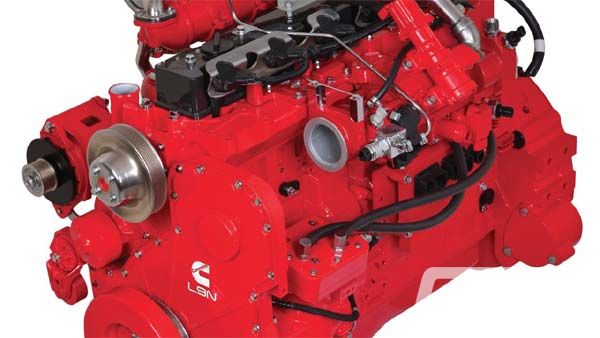In line with its net zero initiative, Destination Zero™, the Columbus-based group continues to make industry-leading contributions to reduce carbon emissions of bus fleets - on a global scale. Currently, Cummins spends an estimated $1 billion annually on research and development.
Cummins-powered CNG buses are being delivered in Tallinn, Estonia and Baku, Azerbaijan, bringing their sustainable bus networks to life.
In line with its net zero initiative, Destination Zero™, the Columbus-based group continues to make industry-leading contributions to reduce carbon emissions of bus fleets – on a global scale. Currently, Cummins spends an estimated $1 billion annually on research and development. The company is aiming to reduce emissions from internal combustion engines at the same time as investing in new, zero-emissions products. This R&D is wrapped up in the above-mentioned Destination Zero™ – a company initiative that aims to drive towards net zero emissions by the year 2050. Every delivery of a lower-carbon engine, no matter how large or small, is then a significant step in its path to net zero.
340 Cummins-powered CNG buses to run in Tallinn, Estonia
Tallinn, Estonia, has taken a big step forward in sustainability with a new fleet of Solaris Urbino CNG buses powered by Cummins L9N engines. The buses will run on renewable biomethane gas from newly established biogas plants which produce near zero-carbon fuel from biowaste, Cummins says.
Built in Poland, the new fleet includes both the low floor 12-metre Urbino carrying up to 80 passengers as well as the 18-metre articulated version able to accommodate up to 150 passengers, bringing extra passenger capacity during busy commuting times. The low floor, multi-door bus design provides easy access and improved sociability due to the smooth, quiet operation of the L9N natural gas engine with 320 horsepower. In addition to ultra-low emissions, the buses also deliver rugged strength, as they will typically cover 50,000 miles a year.
With 76 percent of Tallinn’s residents using public transport, the new buses play an essential role in keeping the city moving. By the end of this year, the new buses will accomplish a 70 percent renewal of the bus fleet, replacing older buses with more advanced, state of the art vehicles that can meet heightened passenger expectations. Operated by AS Tallinna Linnatransport, the buses are improving air quality in the city, whilst also helping to meet a climate action goal to lower carbon dioxide (CO2) emissions throughout the country by 25,000 tons a year, Cummins adds.
700 CNG buses deployed in Baku, Azerbaijan
In Baku, Azerbaijan, a fleet of 700 BMC Procity and Neocity buses are equipped with the same Cummins natural gas L9N engines, installed to reduce carbon emissions and increase overall air quality throughout the city. Natural gas is a cost-effective alternative power solution in Baku, due to local supply availability, sourced from the Caspian Sea. Not only do the L9N engines support a reduction in carbon emissions, they are also part of a wider program that aims to encourage bus use, reducing the number of vehicles on the city’s roads.
The latest generation of the Euro VI L9N engine marks a significant leap forward in clean, natural gas engine technology, Cummins stresses. Many bus fleets operating throughout Europe including Madrid, Paris and Warsaw benefit from Cummins L9N engines.
Source : Sustainable Bus
Views:13693
Tags:
Cummins
engine
CNG buses

